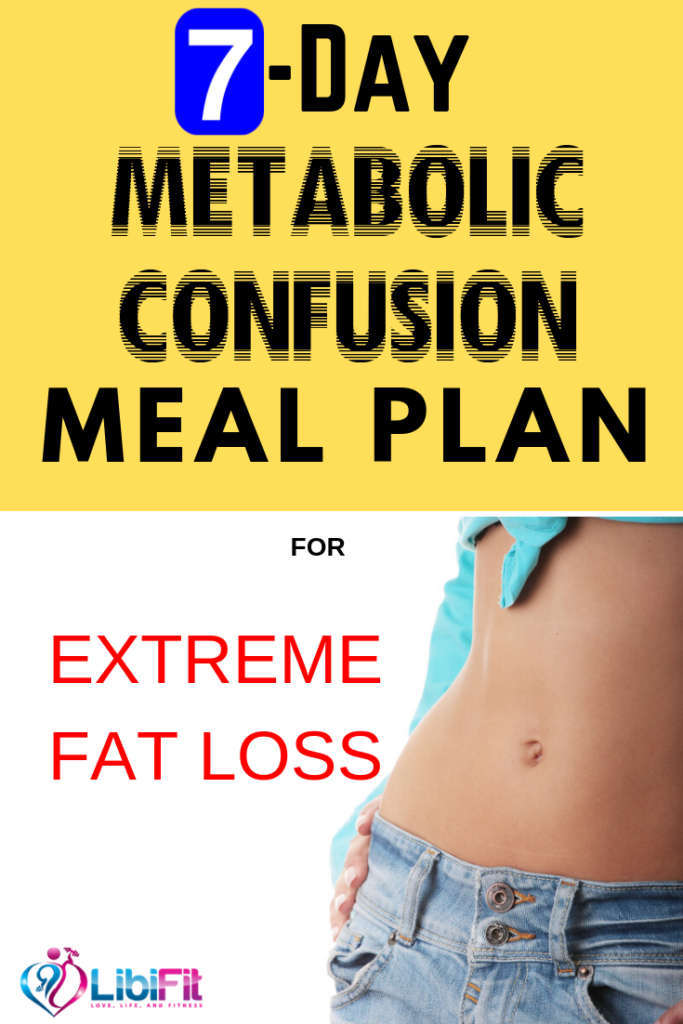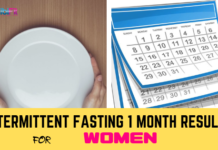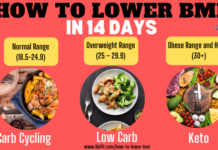Confusing your metabolism to lose weight has been a well-known approach for some time now. But have you ever wondered what it is, how it works, or which metabolic confusion meal plan must be followed in order to achieve maximum benefits?
This article will help you understand the basic concept behind metabolic confusion and the mechanism it follows. It will also provide you with a 7-day metabolic confusion meal plan to help you reap maximum benefits.
What is Metabolic Confusion
Metabolic confusion was introduced to the fitness world a few years back as a guaranteed way to shed extra pounds. Despite being overshadowed by the new diet trends coming one after the other, it still remains as a popular and effective method to achieve your weight loss goals.
The concept behind this dietary approach is quite simple. Instead of eating the exact same number of meals holding the same caloric value, you have to follow a metabolic confusion diet plan in which:
- You should eat at least 4 or more meals per day (be careful not to overeat)
- Every meal must have a varying number of calories. For example, if one of your meal has 500 calories, the next one should comprise of 100 calories. This is also known as calorie shifting. This allows you to have high-calorie days followed by low-calorie days.
When you follow these two rules, a state of metabolic confusion is created in your body. This means that your body tries to make adjustments in your metabolisms depending on your pattern of eating when in actual, there is no pattern. This gives your metabolism a boost and helps you lose body weight quickly.
***Keep reading to gain access to our free metabolic confusion meal plan downloadable pdf.
Metabolic Confusion Meal Plan Approach
In order to get maximum benefits from this diet, all you have to do is eat at least four healthy meals per day while ensuring that every meal has a different caloric value. Generally, people are encouraged to eat low-carb food items like shrimp and veggies because they have low calories. For example, if you have a daily calorie intake of 1200 calories, divide your 4 meals into 2 meals with 400 calories alternating with 2 meals with 200 calories.
Carb Cycling: Best Metabolic Confusion Meal Plan Approach
There are different ways to trick your metabolism and lose weight. Out of all these methods, carb cycling is considered as the best metabolic confusion meal plan to follow. It is an excellent nutrition strategy that alternates between high and low intakes of carbohydrates.
The goal behind varying your carb intake is to help your body access the stored fat and use it as a fuel instead of relying on glycogen. This is combined with exercise, particularly on low-carb days which further boosts the fat-burning ability of the body.

Carb cycling can be accomplished in different ways and depends on the individual goals of a person. To integrate carb cycling in your metabolic confusion meal plan, you must break your diet into varying phases of carb intake. For example, you can have low-carb phase and the high-carb phase. Ideally, you must consume more carbs when you are physically more active and reduce their intake during the rest days.
For following the carb cycling meal plan, it is important to determine the number of carbs to eat. For this purpose, several factors must be taken into consideration such as your weight, age, basal metabolic rate, height, activity level, the macronutrient breakdown, etc.
There are many ways to carb cycle to induce metabolic confusion. Here is a sample carb cycling schedule.
| Day | Carb Intake | Grams of Carbs |
| Monday | High | 200 g |
| Tuesday | Moderate | 100 g |
| Wednesday | No/Low | 0 – 50 g |
| Thursday | High | 200 g |
| Friday | Moderate | 100 g |
| Saturday | No/Low | 0 – 50 g |
| Sunday | No/Low | 0 – 50 g |
Carb Refeeding for Increased Metabolic Confusion
To further increase metabolic confusion, people who carb cycle often do carbohydrate refeeding. This is a day or period where you significantly increase your carb intake level to cause your metabolism to respond more intensely. Here are two methods of carb refeeding.
- Method 1: Low-carb diet is followed for 7 to 14 days followed by a day where you increase the intake of carbohydrates significantly. This is known as refeeding and is used more commonly as a reward for being devoted to a low-carb diet for such a long time. This helps build the psychology of this entire metabolic confusion meal plan. It also ensures that your body is as near to starvation mode as possible but does not cross it.
- Method 2: A refeeding day is incorporated in the metabolic confusion meal plan after 3 to 4 days of following a low-carb diet. This method is especially useful for those who find it difficult to cut carbs from their diet for weeks.
Irrespective of the method you follow, it is important for your body to work out on refeeding days.
***At the end of this article, check out our 7-day metabolic confusion meal plan.

Best Carbs for Carb Cycling Metabolic Confusion Meal Plan
- On a high-carb day, try eating starchy carbohydrates coming from foodslike oatmeal, potatoes, brown rice, quinoa, fruit, and whole-wheat bread. These starches possess more complexly-structured carbs that require more energy to break down. Be sure to include lean protein sources like chicken, turkey, and fish. Also, consuming whey protein power is highly recommended. Here is a low carb whey powder we recommend. We have included it in our 7-day metabolic confusion meal plan.
Isopure Low Carb Protein Powder

- On low-carb days, you must stay away from starchy vegetables and fruits. You are still allowed to consume low-carb veggies such as eggplant, leafy greens, peppers, broccoli, tomatoes, avocados, or cauliflower. You may get protein from lean beef, chicken breasts, and turkey.
5 Benefits of Metabolic Confusion Meal Plans
Here are five benefits of following a metabolic confusion meal plan include:
- Weight Loss: A metabolic confusion meal plan leads to a calorie deficit which promotes weight loss.
- Fat Burning: A low-carb diet allows your body to switch your fuel from carbohydrates to fats.
- Muscle Recovery: High-carb days help refuel your muscle glycogen and provides your body with all essential nutrients.
- Energy Enhancement: High-carb days in a metabolic confusion diet provide energy for working out.
- Insulin Regulation: Low-carb days prevent your sugar levels from spiking while enhancing weight loss. High-carb days, on the other hand, provide a sufficient amount of sugar for the preservation of muscle tissue
Concluding Thoughts on Metabolic Confusion
Following a metabolic confusion meal plan is a great way to reach your weight loss goals without completely depriving your body of all the nutrients. By switching between high-carb and low-carb days, it is possible to shed the several pounds without completely eliminating carbs from your diet.
We have created a 7-day metabolic confusion diet meal plan for you. Simply complete the form below and your will be taken to a page to download the free pdf file.
If you have any questions, feel free to email me at melinda@libifit.com
Till next time…








































